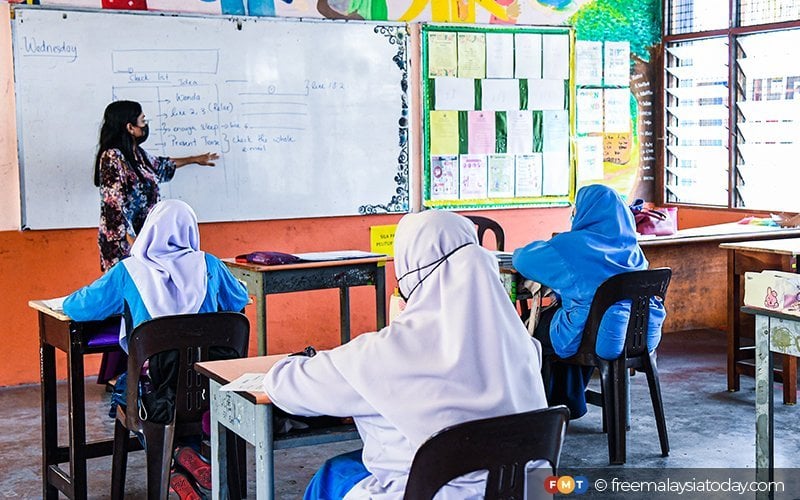FMT:
We can’t be in denial about our education system, says Anwar
Prime Minister Anwar Ibrahim says ‘our failure’ is the obsession with past successes.

The latest Pisa scores show that Malaysian 15-year-olds scored lower in math, science and reading than in previous years.
KUALA LUMPUR: Prime Minister Anwar Ibrahim says the country cannot be in denial about the state of its education system.
In a speech at an event at Universiti Malaya, Anwar said there were concerns about education in the country, citing the drop in last year’s international student assessment (Pisa) scores.
“Our failure is our obsession with past successes. The common excuse is Covid-19 but it affected all countries including Laos, Cambodia and Indonesia.
“Why have we failed in this score? These are questions we must ask before embarking on the future. We cannot be in a state of denial.”
Anwar said though Malaysia cannot dismiss its past successes, the “bare facts” remain concerning.
“We are not here to deny that we have achieved some growth and unity, and a certain level of education,” he added.
Meanwhile, Anwar said he disagreed with the ministry’s plan to start its digital transformation programme only in 2027. He added that tough decisions must be made to accelerate the digital transformation.
“I understand the ministry needs time but we can’t wait and implement it only in 2027. Yes, we don’t have enough resources, but we must use whatever is available now to get it started,” he said.
Last month, education deputy director-general (school operations) Azman Adnan said the Pisa drop is not unique to Malaysia.
He said many other countries around the world were also affected by “learning losses” due to the Covid-19 pandemic.
Administered by the Organisation for Economic Cooperation and Development (OECD), the Pisa is a triennial survey of 15-year-old students that assesses their acquisition of key knowledge and skills essential for full participation in society.
The assessment focuses on proficiency in reading, mathematics, science as well as on the students’ well-being.
KUALA LUMPUR: Prime Minister Anwar Ibrahim says the country cannot be in denial about the state of its education system.
In a speech at an event at Universiti Malaya, Anwar said there were concerns about education in the country, citing the drop in last year’s international student assessment (Pisa) scores.
“Our failure is our obsession with past successes. The common excuse is Covid-19 but it affected all countries including Laos, Cambodia and Indonesia.
“Why have we failed in this score? These are questions we must ask before embarking on the future. We cannot be in a state of denial.”
Anwar said though Malaysia cannot dismiss its past successes, the “bare facts” remain concerning.
“We are not here to deny that we have achieved some growth and unity, and a certain level of education,” he added.
Meanwhile, Anwar said he disagreed with the ministry’s plan to start its digital transformation programme only in 2027. He added that tough decisions must be made to accelerate the digital transformation.
“I understand the ministry needs time but we can’t wait and implement it only in 2027. Yes, we don’t have enough resources, but we must use whatever is available now to get it started,” he said.
Last month, education deputy director-general (school operations) Azman Adnan said the Pisa drop is not unique to Malaysia.
He said many other countries around the world were also affected by “learning losses” due to the Covid-19 pandemic.
Administered by the Organisation for Economic Cooperation and Development (OECD), the Pisa is a triennial survey of 15-year-old students that assesses their acquisition of key knowledge and skills essential for full participation in society.
The assessment focuses on proficiency in reading, mathematics, science as well as on the students’ well-being.
No comments:
Post a Comment